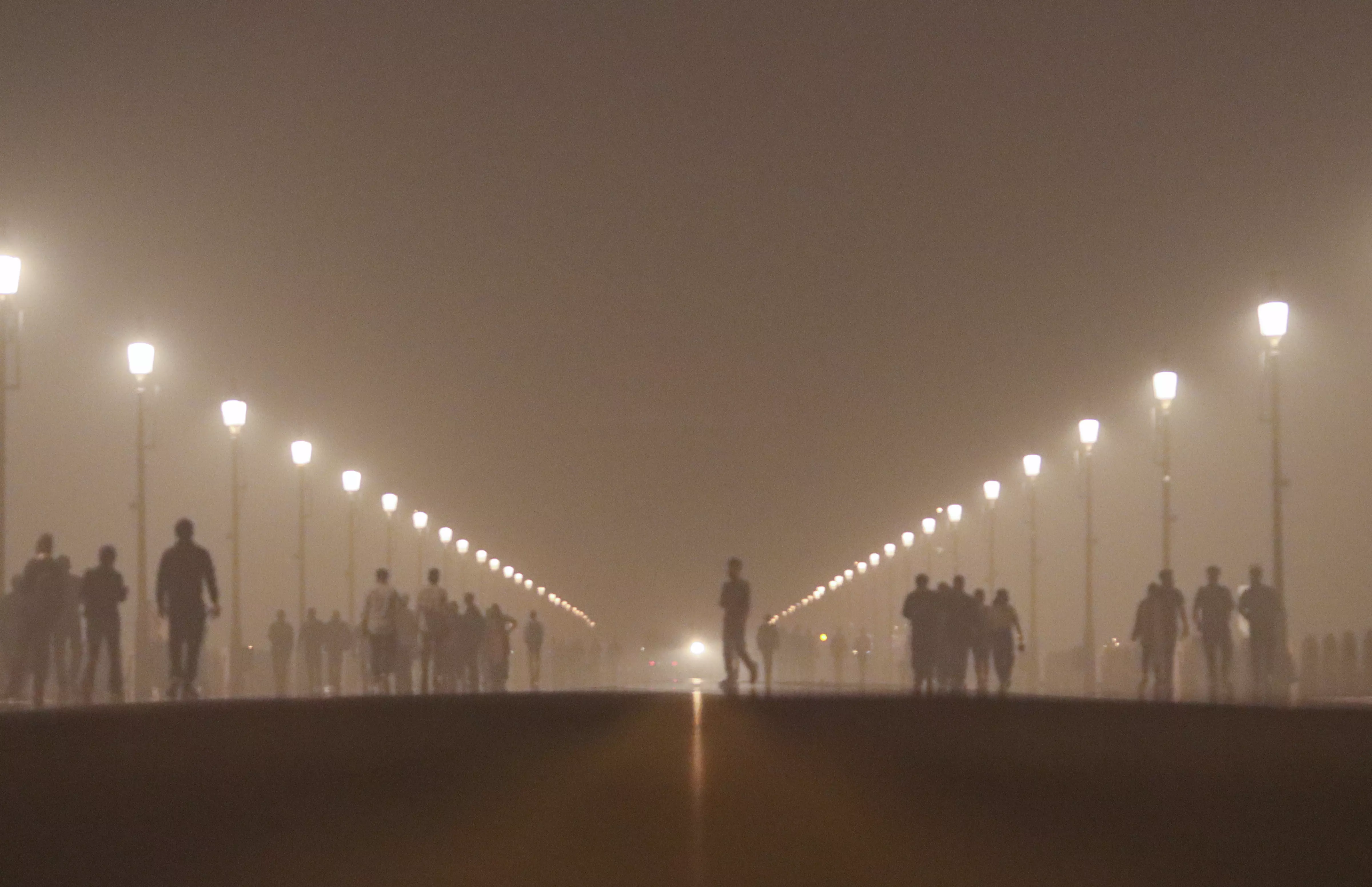
Delhi in clutches of thick smog as AQI nears 500; trains delayed; all classes go online
While Delhi’s AQI was recorded at 494 at 6 am on Tuesday, pollution levels at most of the 35 monitoring stations hovered at 500

Delhi and its neighbourhood continued to suffocate from heavy pollution levels on Tuesday (November 19) as a thick blanket of smog hung over the region with the Air Quality Index (AQI) touching the 500 mark.
According to data by System of Air Quality and Weather Forecasting and Research (SAFAR), Delhi’s pollution levels continued to linger in the ‘severe plus’ category with AQI recorded at 494 at 6 am.
AQI at most of the 35 monitoring stations hovered at 500.
An ‘orange’ alert for dense fog has also been issued by the India Meteorological Department (IMD) for Tuesday.
Switch to online classes
While restrictions under GRAP-4 are in place in Delhi-NCR, the government on Monday announced the suspension of in-person classes for Classes 10 and 12. Earlier, the government had announced online mode for the rest of the classes in view of worsening pollution situation.
"From tomorrow physical classes shall be suspended for Class 10 and 12 as well, and all studies will be shifted online," Chief Minister Atishi said in a post on X.
"With the imposition of GRAP-4 from Today, physical classes were discontinued for all students, apart from Class 10 and 12. All schools will hold online classes, until further orders," she had said in a post on Sunday.
Also read: Interactive | Air quality levels: How many 'cigarettes' do Indians 'smoke'?
The Directorate of Education, too, issued a circular directing the heads of government and private schools to discontinue the classes for all students, including class 10 and 12.
Both Delhi University and Jawaharlal Nehru University also announced a shift to online classes till November 23 and 22 respectively.
Delhi University in a notification said regular classes in "physical mode" will resume on November 25. JNU, in its statement, said it would conduct all classes online till November 22.
The schedule of exams and interviews, however, remains unchanged, the universities said.
Trains, flights delayed
The fog has led to the delay and cancellation of trains and flights. According to ANI, around 22 trains were delayed and nine cancelled due to poor visibility on Tuesday morning.
IndiGo airlines too cautioned passengers about “slow moving traffic” and possible changes to flight operations in view of the foggy weather.
"Foggy weather in Delhi, Amritsar, and Chandigarh is affecting travel conditions, including slow-moving traffic and possible changes to flight operations. Please plan accordingly and stay updated on the flight status for a smooth journey,” the airline said in a late night advisory.
The Delhi government has termed the air situation a "medical emergency" and urged institutions to take preventive measures in the interest of public health.
The two major factors affecting the city's air are weather conditions and stubble burning.
GRAP-4 in place
The Commission for Air Quality Management on Sunday invoked stricter pollution control measures for the Delhi-NCR under the Stage 4 of the Graded Response Action Plan, or GRAP, that came into effect from 8 am Monday. Physical classes for classes other than 10th and 12th had already been shifted online.
Delhi's AQI worsened on Monday, reaching 494 at 4 pm.
Also read: Delhi’s AQI at ‘severe +’; trucks banned, in-person classes suspended as GRAP-4 kicks in
According to the government's anti-pollution GRAP-4 measures, no trucks will be allowed into Delhi except for those carrying essential items or using clean fuel (LNG/CNG/BS-VI diesel/electric).
Non-essential light commercial vehicles registered outside Delhi will also be prohibited, except for EVs, CNG and BS-VI diesel vehicles.
Delhi-registered BS-IV or older diesel medium and heavy goods vehicles are banned, except for those used for essential services, the panel said.

